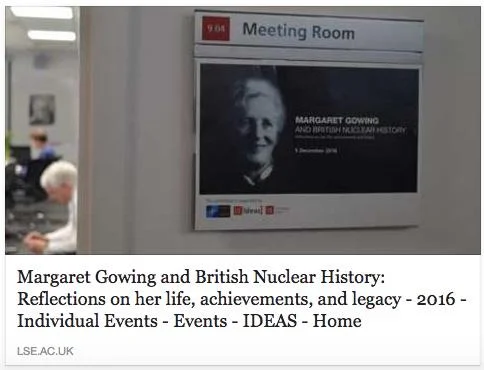
Connect
About
*Buyout Leave 2025-26*
Professor Jones studied for his undergraduate degree at the University of Sussex, and went on to St Antony’s College, Oxford, where he gained his DPhil in Modern History. He was appointed to a Lectureship in the History Department at Royal Holloway, University of London in 1994, and subsequently promoted to Reader in International History before moving to the University of Nottingham in 2004 where he was Professor of Modern History. In 2008, Professor Jones was appointed by the Prime Minister to become the Cabinet Office official historian of the UK strategic nuclear deterrent and the Chevaline programme. He joined LSE in September 2013 as Professor of International History.
As reflected in his articles and books, Professor Jones’s interests span many aspects of the history of British and American foreign and defence policy in the twentieth century, as well as the Cold War more generally. He also has a long standing specific interest in the end of empire in South East Asia. His first book was Britain, the United States and the Mediterranean War, 1942-44 (Macmillan, 1996), which examined the strains brought to the Anglo-American relationship by strategic issues and command problems in the Mediterranean theatre, as well as disputes over civil affairs and the ‘politics of liberation’ as the Allied forces moved through North Africa, Sicily, and Italy, and approached the Balkans. For his next book, Conflict and Confrontation in South East Asia, 1961-1965: Britain, the United States, Indonesia, and the Creation of Malaysia (Cambridge University Press, 2002), he looked at the process by which the federation of Malaysia was created as British decolonization gathered pace in the 1960s, the way this helped to trigger conflict with Indonesia, and the attitude of the United States toward these events as its own involvement in the region deepened. After Hiroshima: The United States, Race, and Nuclear Weapons in Asia, 1945-1965, published in 2010 by Cambridge University Press, looked at the development of US nuclear strategy in Asia in the period marked by the Korean War, confrontation with China, and the early phases of US engagement in Vietnam, placing a special emphasis on the influence of the widespread perception that the atomic bomb was a ‘white man’s weapon’ and the diplomatic and military dilemmas this helped create.
Two of his most recent books, published in 2017, arise from his appointment as an official historian by the Cabinet Office: The Official History of the UK Strategic Nuclear Deterrent. Volume I: From the V-Bomber Era to the Arrival of Polaris, 1945-64 and The Official History of the UK Strategic Nuclear Deterrent. Volume II: The Labour Government and the Polaris Programme, 1964-70, both published by Routledge in 2017. This large-scale project on UK nuclear weapons policy has taken him into many aspects of post-1945 international history, including US-Soviet relations, the development of NATO strategy, and strategic arms control. Professor Jones is continuing work, now under the auspices of the Ministry of Defence, toward a third and concluding volume of the official history series on the UK strategic nuclear deterrent which will cover the period between 1970 and 1982.
In 2019, he released a book with Professor Kevin Ruane of Christ Church Canterbury University on British policy and Anglo-American relations during the Indochina crisis of 1954. Anthony Eden, Anglo-American Relations and the 1954 Indochina Crisis (Bloomsbury) revisits a Cold War episode in which British diplomacy played a vital role in settling a crucial question of international war and peace.
Professor Jones has been the recipient of grants and awards from the Arts and Humanities Research Council, the British Academy, the John F. Kennedy Presidential Library, the Lyndon B. Johnson Presidential Library, the Gilder Lehrman Institute of American History, and the Eccles Centre for North American Studies at the British Library.
He was Head of Department of International History at LSE from 2017 to 2020.
Expertise
Post-Second World War British Foreign and Defence Policy, Cold War Nuclear History, Vietnam War, British Decolonization and South East Asia, Post-1941 US Foreign Relations, Anglo-American Relations
